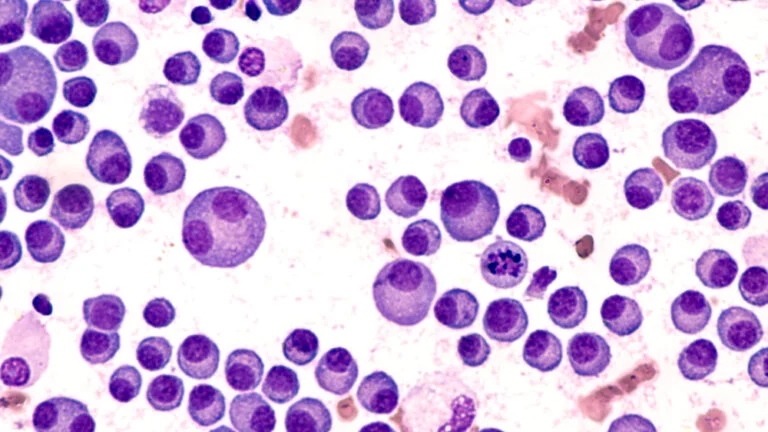Kelonia presents ‘compelling evidence’ for transformative multiple myeloma treatment

Kelonia Therapeutics, a biotech company working on in vivo gene delivery, has announced the results of preclinical research demonstrating that its in vivo Gene Placement System (iGPS) technology efficiently delivered CAR molecules specifically to T cells at therapeutic dose levels in both mice and non-human primates (NHPs).
Kelonia’s iGPS platform enables CAR T cell therapy without the need for lymphodepleting chemotherapy or time-consuming ex vivo manufacturing. These data demonstrate the potential for iGPS particles to be a highly effective, safe, “off-the-shelf” therapy for patients with multiple myeloma, which Kelonia is pursuing as its lead indication.
Kelonia shared the data during an oral presentation at the American Society of Gene & Cell Therapy (ASGCT) 26th annual meeting in Los Angeles.
“In just over a year since launching, the extraordinary Kelonia team has shown the potential of our iGPS technology to provide precise, efficient, and safe CAR gene delivery directly to multiple myeloma patients intravenously and as an off-the-shelf therapy that doesn’t require preparative chemotherapy for potent CAR T cell activity,” said Kevin Friedman, founder, president, and chief scientific officer at Kelonia Therapeutics.
“Cancer patients are waiting for an incredibly effective medicine without the severe toxicities or complicated manufacturing that have limited the accessibility and impact of existing CAR T cell therapies. Today, we’ve shown compelling preclinical evidence that achieving this transformative treatment for multiple myeloma is possible with Kelonia’s iGPS technology, and we look forward to sharing additional information as we progress towards the clinic.”
Intravenous infusion of NHPs with surrogate iGPS particles expressing an anti-CD20 CAR in the absence of preparative chemotherapy resulted in potent CAR T cell activity across a 10x dose range. No clinical or biomarker evidence of toxicities, including cytokine release syndrome or neurotoxicities, was observed even at the highest dose level.
Potent anti-tumor activity was observed with iGPS particles that expressed an anti-BCMA CAR in mouse models of multiple myeloma. CAR T cells generated in vivo with iGPS particles exhibited prolonged functional persistence and tumor control compared to standard, ex vivo CAR T cells.
In both mice and NHPs, therapeutic dose levels of iGPS particles specifically transduced T cells and showed no evidence of unexpected “off-target” transduction, including progenitor cells or in vital and reproductive organs.